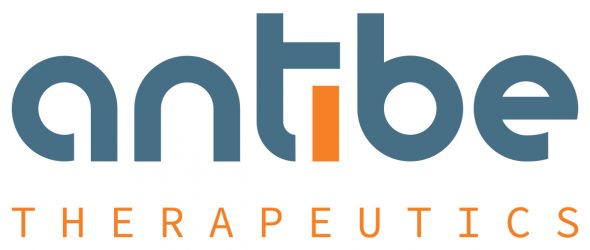TORONTO–(BUSINESS WIRE)–Antibe Therapeutics Inc. (“Antibe” or the “Company”) (TSXV: ATE, OTCQB: ATBPF), a leader in developing safer, non-addictive therapeutics for pain and inflammation, is pleased to announce the publication of a multi-national study entitled “Enhanced Analgesic Effects and GI Safety of A Novel Hydrogen Sulfide‐Releasing Anti- Inflammatory Drug (ATB‐352): A Role for Endogenous Cannabinoids”. This article was published in “Antioxidant and Redox Signaling”, a leading international peer-reviewed biomedical journal.
ATB-352 is a hydrogen sulfide-releasing derivative of ketoprofen, one of the more potent nonsteroidal anti-inflammatory drugs (NSAIDs) commonly prescribed for severe pain. However, ketoprofen is also one of the most damaging NSAIDs to the gastrointestinal (“GI”) tract. ATB-352 is being developed by Antibe as a GI-safe and non-addictive alternative to opioids for the treatment of post-surgical pain.
The article reports on a series of studies which demonstrate that ATB-352 induces much greater pain relief than ketoprofen in a well characterized animal model of surgical pain. Despite the increased analgesic potency, ATB-352 was also much better tolerated in the GI tract. Indeed, the pain-relieving potency of ATB-352 compared to ketoprofen was greater than 3-fold. Mice receiving ketoprofen exhibited a dose-dependent increase in the severity of bleeding ulcers in the stomach and intestine. In contrast, no GI damage was observed in mice treated with ATB-352, even at very high doses.
The research team also identified a mechanism of action that explains the increased pain-killing effects of ATB-352 compared to ketoprofen. In addition to blocking the production of pain-promoting substances called “prostaglandins”, ATB-352 further reduced pain by significantly elevating levels of naturally occurring endocannabinoids in comparison to the levels of endocannabinoids observed in mice treated with ketoprofen.
The study was led by Antibe’s Chief Scientific Officer, Dr. John Wallace, and included internationally recognized researchers from the University of Calgary (Canada), the University of Sao Paulo (Brazil), the University of Campinas (Brazil) and Umea University (Sweden).
About Antibe Therapeutics Inc.
Antibe develops safer, non-addictive medicines for pain and inflammation. Antibe’s technology involves linking a hydrogen sulfide-releasing molecule to an existing drug to produce an improved medicine. Antibe’s lead drug, ATB-346, targets the global need for a safer, non-addictive drug for chronic pain and inflammation. ATB-352, the second drug in Antibe’s pipeline, targets the urgent global need for a non-addictive analgesic for treating post-surgical pain, while ATB-340 is a GI-safe derivative of aspirin. Citagenix Inc., an Antibe subsidiary, is a market leader and worldwide distributor of regenerative medicine products for the dental marketplace. www.antibethera.com.
Forward Looking Information
This news release includes certain forward-looking statements, which may include, but are not limited to, the proposed licensing and development of drugs and medical devices. Any statements contained herein that are not statements of historical facts may be deemed to be forward-looking, including those identified by the expressions “will”, “anticipate”, “believe”, “plan”, “estimate”, “expect”, “intend”, “propose” and similar wording. Forward-looking statements involve known and unknown risks and uncertainties that could cause actual results, performance, or achievements to differ materially from those expressed or implied in this news release. Factors that could cause actual results to differ materially from those anticipated in this news release include, but are not limited to, the Company’s inability to secure additional financing and licensing arrangements on reasonable terms, or at all, its inability to execute its business strategy and successfully compete in the market, and risks associated with drug and medical device development generally. Antibe Therapeutics assumes no obligation to update the forward-looking statements or to update the reasons why actual results could differ from those reflected in the forward-looking statements except as required by applicable law.


